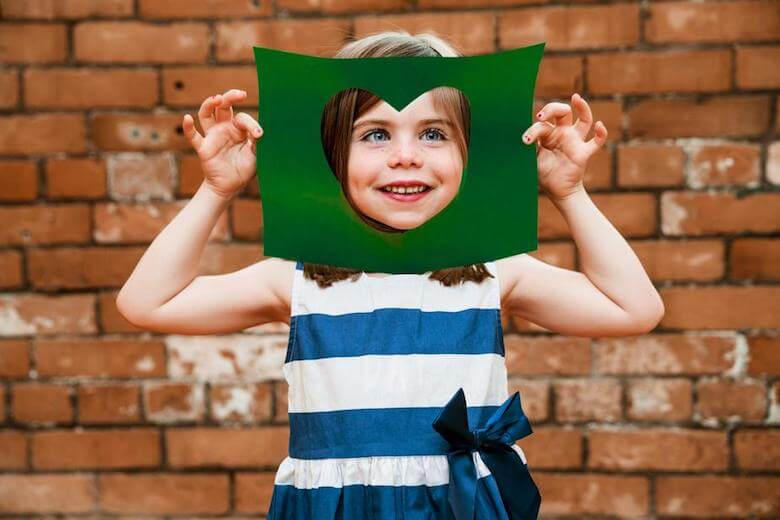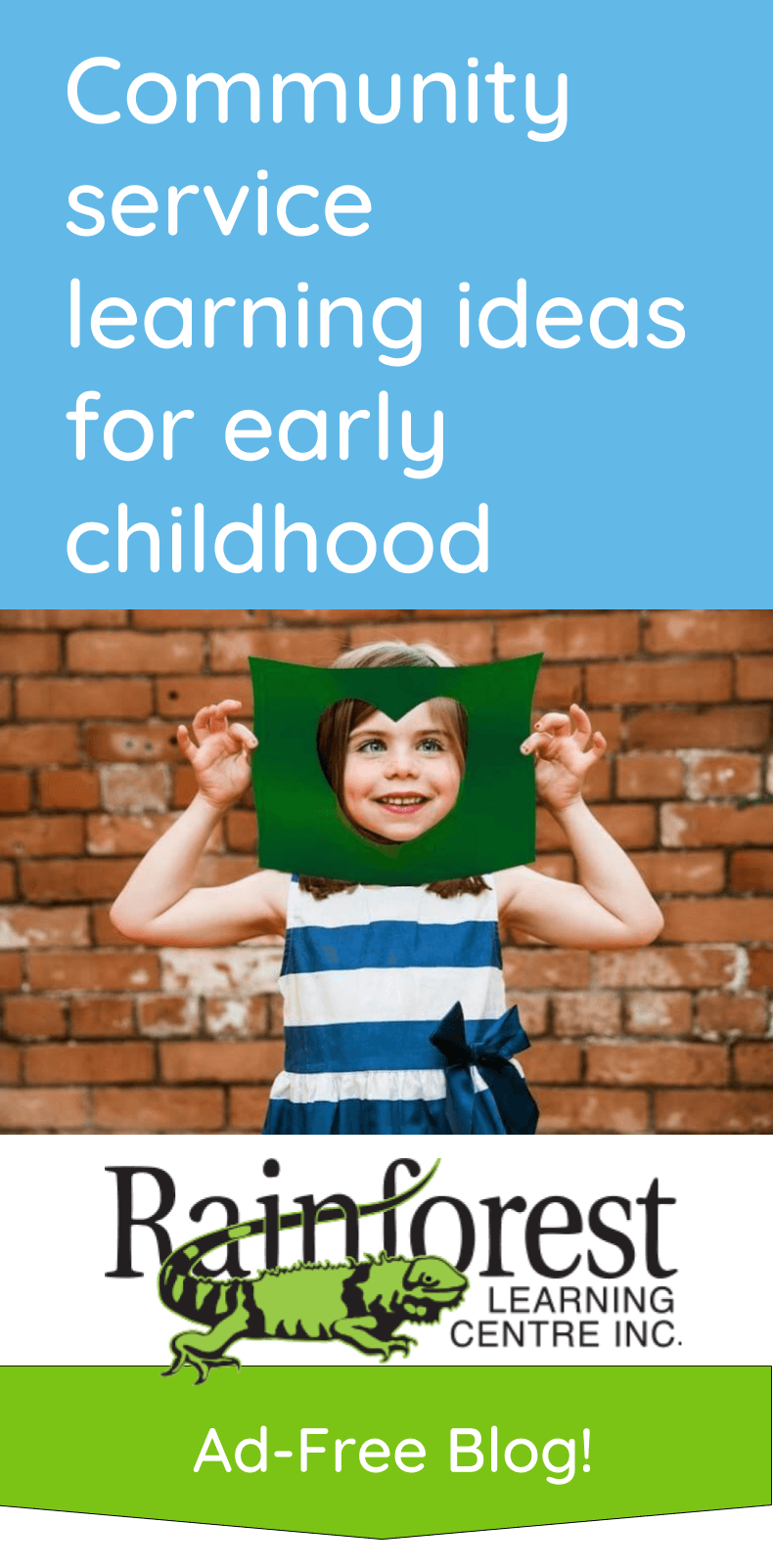
Service learning is usually thought of in contexts of older kids, or university students, applying an educational lesson in the classroom. However, there is no reason service learning can’t happen in early childhood, or even in childcare settings. Taking on preschool community service projects can be a great way to achieve interdisciplinary learning. Educators and daycare workers can also use experiential learning methods in this style of applicable, real-world teaching.
But, the question is, what would be appropriate for elementary or pre-k kids when it comes to helping out in the community? Clearly, they can’t do ‘big’ volunteer jobs. And, they are still young, so exposing them to all the world’s woes might be a bit much for them to absorb. Fear not! In this article, we’ll give some community service learning ideas for early childhood and daycare.
Help a classmate, or schoolmate, in need of a practical solution
One of the most practical ways to teach empathy, and to help kids get along at preschool or daycare, is to encourage team mentality. As you can see by this video from Edutopia, kids were able to help a classmate in need by building him a custom wheelchair. This made for an excellent service learning project. The children learned math, science and engineering, while also being able to help someone as a team.
Of course, preschool-aged kids may not be at the capacity of being able to engineer a wheelchair. But the principle is that learning by helping our community can be something close by, and not necessarily on the world stage. It can be in our own classroom!
Consider whether there is a kid in your preschool class who could use the help of classmates, or even from schoolmates at a nearby elementary program. This type of lesson could especially benefit a child with special needs, where peers can develop empathy, learn inclusion and build awareness around these issues. But – a classroom community project doesn’t only need to be about special needs!
Host buddy days with older kids helping younger kids
As we’ve written about before, there are many benefits to buddy programs, where older kids mentor younger kids. These programs need to be carried out with care (so as not to overwhelm the older kids). However, they payoff a lot when it comes to service learning, and teaching kids to care about their immediate community.
The way to change these buddy times from being merely a service, to an actual service learning project, is to include stages of reflection before and after. The mentors (and even mentees) can come together to brainstorm ideas for improvement. Then, they can present their findings to each other after carrying out that improvement. Finally, they can re-evaluate, and repeat the process.
Implement a daycare or preschool recycling and compost program
Teaching kids to recycle brings in the opportunity to teach about the planet, too. Recycling and composting can be a year-round service learning project. And, it’s totally appropriate for the preschool age, since it’s easy to teach and do.
To have the preschoolers reflect and learn from the community project, keep visual charts up on your classroom walls, so they can see progress. Measure how many bottles, cans and packages they’ve recycled. Or how much money they’ve raised by returning bottles for deposits. Let them see how much they can make a difference in their own community, little-by-little – it all counts!
To get a bit more creative, see if you can teach preschoolers to recycle things we don’t often associate with recycling drives. For example, styrofoam, toothbrushes, electronics and batteries.
Your class can use an app or website to see what can be recycled in your city. To get the kids motivated, you can let them choose what they want to collect and recycle together as a class. Here are resources for B.C. residents in Canada:
https://www.return-it.ca/recycling/
https://recyclebc.ca/what-can-i-recycle/
Here is a list of surprising materials you can recycle at special locations (though, most of these will need to come from grown-ups, and many aren’t safe for little ones to be handling, like prescription meds).
And, even more fun – start a compost! Teach kids what can go in your city’s green waste program, or what can be turned into garden ‘food.’ In fact, you can start a class gardening project, to grow food for a good cause. This, of course makes an excellent, practical science lesson!
Adopt a pond or park for service learning at preschool
At our daycare, we have a duck pond nearby. We use that as a classroom community project. The children learn to clean up the area, and take care of the pond. They learn to appreciate and respect nature. And, they get opportunities for biology lessons too.
Your daycare, preschool or elementary school can do the same with nearby parks, and even gardens.
The important thing about garbage clean ups, however, is to make sure the kids are staying safe, and away from harmful materials. Be sure they are gloved, know to wash their hands, and are taught what they should not touch – like sharp objects. If your classroom kids are old enough, they can also use garbage pickers.
Take preschoolers on service learning field trips
This idea can go far and wide. There are many places you can take preschoolers that will teach them about community service, and even give them a chance to volunteer for a day. You can show them they can make a difference, while teaching them valuable lessons relating to their educational subjects.
Here are some field trip ideas for teaching community service to preschoolers:
- Go to an animal shelter to help clean cages and feed pets. Maybe the group can collectively pick a classroom pet to adopt?
- Visit the elderly at a nursing home, to give them some cheer: cards, a song, some board game time…(be sure to have grandparent days at school too!)
- Collect items to make care packages for sick children in hospitals. Then personally deliver them for visits, to cheer up those their age.
- If your kids are able to, try crocheting socks or toques (beanie hats) for the homeless. Or bake some cookies, or do something else that’s nice for those who don’t have a home.
- Visit a fire hall, police station or first responder ambulance. Have them learn about how these valuable professions keep our communities safe, and how we can keep our home and school safe too. (Extra tip: here are lessons based on this theme that you can use too).
To conclude: remember to make preschool service learning effective with ‘before and after’ reflections
Service learning can be fun for preschool-aged kids, or even for a daycare program. The key is to make the projects reflective, so the kids are taught valuable lessons, and not just doing the actions. They should know what impact they’re having. This is to instil the thought that they can make a difference in a lot of little ways. One way to use an assessment method is through journaling – and that can be with photos, drawings, or more. Classroom carpet time for discussions, and related story books also help.
To increase engagement, try to make these experiential lessons as self-directed as possible. That means, letting the kids choose the community service they want to do, and also letting them solve the problems they encounter, all on their own.
See related posts on our blog:
- 4 Benefits of daycare ‘buddy time,’ when older kids mentor preschoolers
- How to find and use teachable moments as an early childhood educator
- What is social competence in the early years?
- 4 preschool journaling experiences to try in early childhood
- Teaching young kids about stranger safety
- 3 ways early childhood educators can help kids get along and feel included
- What is experiential education in early childhood, and why is it important?
- Reasons and ideas to teach preschoolers about recycling
